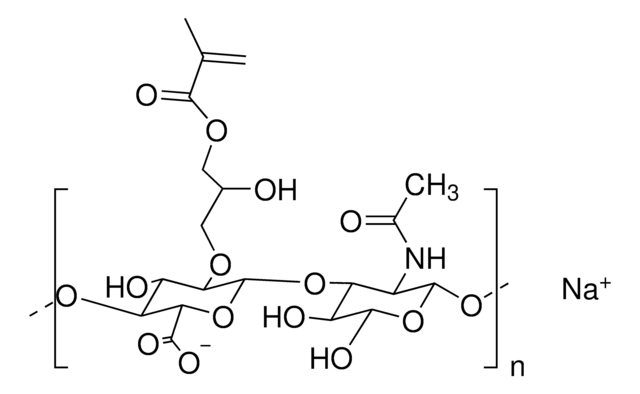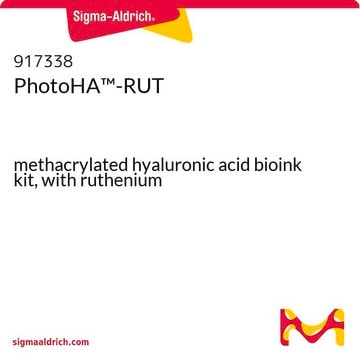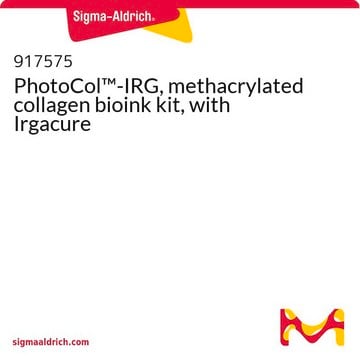917079
PhotoHA™-IRG, methacrylated hyaluronic acid bioink kit, with Irgacure
Synonyme(s) :
3D Bioprinting, Bioink, HAMA, Hyaluronic acid
About This Item
Produits recommandés
Description
Methacrylated hyaluronic acid:
Degree of methacrylation: ≥ 45-65%
Niveau de qualité
Stérilité
sterile; sterile-filtered
Poids mol.
Mw 100-150 kDa
Composition
Product components :
Methacrylated hyaluronic acid (100 mg)
Irgacure photoinitiator (100 mg)
Température de stockage
−20°C
Application
Informations légales
Mentions de danger
Conseils de prudence
Classification des risques
Aquatic Chronic 2
Code de la classe de stockage
11 - Combustible Solids
Certificats d'analyse (COA)
Recherchez un Certificats d'analyse (COA) en saisissant le numéro de lot du produit. Les numéros de lot figurent sur l'étiquette du produit après les mots "Lot" ou "Batch".
Déjà en possession de ce produit ?
Retrouvez la documentation relative aux produits que vous avez récemment achetés dans la Bibliothèque de documents.
Notre équipe de scientifiques dispose d'une expérience dans tous les secteurs de la recherche, notamment en sciences de la vie, science des matériaux, synthèse chimique, chromatographie, analyse et dans de nombreux autres domaines..
Contacter notre Service technique









